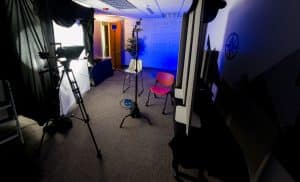 You’re a content creator working on YouTube videos, not a Hollywood producer helming a multimillion-dollar production. So, do you really need production insurance?
You’re a content creator working on YouTube videos, not a Hollywood producer helming a multimillion-dollar production. So, do you really need production insurance?
The answer is, “What, are you crazy?? Of course you do!”
Whether you’ve worked on a YouTube video, or a Tom Cruise blockbuster, you’ve seen things go wrong. Camera problems, weather, traffic accidents on the way to set; all things that can derail your production.
While you can’t prevent problems, you can do everything you can to prevent those problems from bankrupting your dream.
Which is why savvy content creators follow the lead of Hollywood veterans and never start shooting without production insurance.
But finding the right coverage can be confusing.
Here’s a quick break down of what you need to protect yourself, your crew, and your business.
Production insurance is designed to protect video producers and their productions when accidents happen. There is no blanket policy when it comes to production insurance. Each policy is different and tailored to meet the needs of the producer, production, or production company.
Why? The danger inherent when shooting great white sharks is much different than when shooting the librarian reading a book during story hour.
But both productions still need insurance.
From page one of the script to the wrap party, insurance should be the one budget item that you don’t leave out.
Typically, we think of production insurance as covering on-set injuries and equipment loss or damage. However, production insurance covers much more.
A Production Insurance Package can respond to claims for owned and rented vehicles used in production, shooting delays, talent resignation, copyright infringement suits (for that out-of-focus, copyrighted photo in the background of your master shot).
So many things can, and will, go wrong. But the good news is that there are insurance options for all of it.
You’ll start by determining exactly what you need. You will need to be upfront, honest, and thorough when working with a broker. If you don’t disclose everything you’re doing, and a claim is brought against the business, you may not be covered.
You need coverage for employees, both on camera and behind the scenes.
If you’re shooting on location, you may need a Certificate of Insurance. The quickest way to getting shut down is to show up on location with no Certificate of Insurance on file.
Your insurance needs vary, depending on the production. But some coverages options are available that you will definitely need.
General Liability provides coverage for locations, third-party bodily injury, and third-party property damage. General Liability usually has a million-dollar limit. However, if you need higher coverage, excess or umbrella policies are available.
Even if your entire production takes place in your own studio, you need General Liability to protect your assets in the case of a claim against your business.
Never bring equipment to a set without first getting insurance. If you rent, it’s required by the rental house just to pick up the gear. If it’s your own equipment, insurance is a must have.
While cameras get the most attention, a business personal property policy (BPP) may also cover sound and lighting gear, grip equipment, computers, office furnishings, and even the director’s chair – in case of damage.
A BPP also responds to claims of theft or loss, like when you leave equipment in a van and the van is burglarized.
Workers’ Comp can protect your team, your staff, and your employees’ medical expenses in case of a covered, on-the-job injury or illness. It may also provide paid time off if they have an on-the-job injury or illness.
As a business owner, you can also be included in workers comp, but it may affect your premium.
In some states, workers’ comp is required. So, check with your broker.
Professional Media Liability insurance responds to claims of copyright, trademark infringement, defamation and slander, invasion of privacy, unauthorized use, plagiarism, and more.
Think it can’t happen to you? The movie “The Dark Knight” was famously sued by the Turkish city of Batman for name appropriation. Even a frivolous lawsuit can cost you big time in legal defense fees.
While most film productions can get away with the basics of General Liability, Workers’ Comp, Equipment Coverage, and Media Liability, some productions require special endorsements. These special production policies cover a wide swath of elements, including:
Having the right policy to cover your special needs is the best way to safeguard your production.
No matter how prepared you feel, or how experienced and confident your crew is, the unexpected can still happen. Production Insurance can offset the cost of accidents that occur before, during, or after production.
If you’re a producer or production company, taking care of your cast and crew is your number one job. Without production insurance you’re putting them, and your business, at risk. If there’s an accident or injury on set and you’re not insured, your business could wind up being responsible for the costs or worse.
Protect yourself, protect your crew, protect your future. Before you roll camera, take action and get properly insured.
Call our insurance team at 949.305.5000 to learn more about insurance coverage options at Semaphore.